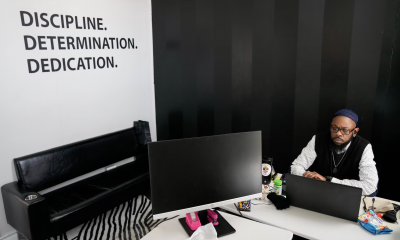Local
Dozens testify at Md. House hearing on marriage bill
Backers fear needed support may be eroding; referendum threat looms
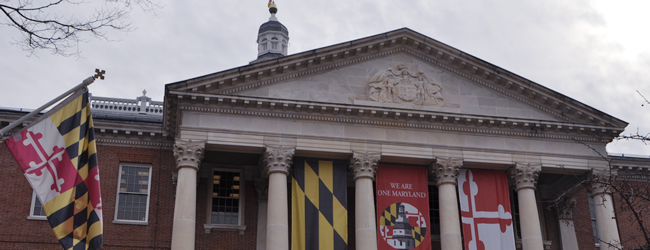
Dozens of witnesses testified for and against a same-sex marriage bill before a committee of the Maryland House of Delegates in Annapolis on Friday as the bill’s sponsors cautioned supporters not to become complacent.
Among the first to testify for the bill were the five lesbian members and one gay male member of the House of Delegates, who gave personal accounts of how they and their partners are considered “strangers” under the current Maryland law that bars same-sex couples from marrying.
Many of the same-sex marriage bill’s opponents, while testifying against that measure, testified in favor of a separate bill under consideration at the hearing that was introduced by Del. Don Dwyer (R-Anne Arundel County). Dwyer’s bill calls for a state constitutional amendment banning same-sex marriage.
The Civil Marriage Protection Act, which would legalize marriage for gay and lesbian couples, was approved one day earlier in the Maryland Senate by a vote of 25-21, prompting LGBT activists to celebrate what they called a historic victory.
But officials with the statewide LGBT advocacy group Equality Maryland expressed concern that an expected vote on the bill in the House of Delegates within the next two weeks appears much closer than originally expected.
Backers said that as of this week, the number of delegates who have publicly declared their support for the bill was just short of the 71 votes needed in the 141-member House.
“There’s an effort to derail this bill like none I’ve seen before,” said gay State Sen. Richard Madaleno (D-Montgomery County), the author and one of the lead sponsors of the marriage equality bill in the Senate.
In a telephone news briefing on Friday, Madaleno said the mainstream media have repeatedly reported an earlier assumption that support for the bill was greater in the House than in the Senate, and approval of the measure in the Senate guaranteed its passage in the House.
With opponents, including the Maryland Catholic Conference and the New Jersey-based National Organization for Marriage, applying enormous pressure on wavering delegates, Madaleno and Equality Maryland officials said support in the House might be in jeopardy.
A warning signal that support in the House could diminish surfaced earlier in the week when Del. Melvin Stukes (D-Baltimore City), a co-sponsor of the marriage bill for the past four years, withdrew his sponsorship.
Stukes told the Baltimore Sun he thought the bill would have given same-sex couples the right to obtain civil unions rather than marriage. Once he realized the measure would allow gays to marry he determined he made a mistake, he told the Sun.
“I’m very sorry that I got on the bill,” he said.
Activists said privately that they were baffled over Stukes’ change of heart on the bill because he represents a progressive-leaning district in Baltimore where the majority of residents would not object to his support for allowing gays to marry.
Del. Heather Mizeur (D-Montgomery County), one of the House’s five lesbian members, said concern over possible erosion of support among delegates prompted supporters to scrap an earlier strategy calling for bringing the bill up for a vote at the very end of the House of Delegates session in April.
Doing that would shorten the time opponents have for gathering petition signatures needed to place the bill before voters in a referendum, making it more difficult to pull off a referendum.
Under Maryland’s referendum law, the clock begins for obtaining petitions when a bill is passed by both houses and the governor signs it. The state constitution sets the deadline for turning in the required number of petition signatures — 3 percent of the registered voters in the state — by June 1 following the adjournment of the legislature, which usually takes place at the end of April.
Thus by passing the marriage bill in the House in early March, as supporters now hope to do, opponents could get more than a month of additional time to obtain the petition signatures than if the bill passed at the end of the session in late April. Gov. Martin O’Malley has said he would sign the bill if it reaches him.
If opponents succeed in gathering the required number of valid petition signatures, the bill is put on hold. It would not become law unless voters defeat the referendum question submitted by opponents, which would call for defeating the bill and defining marriage in the state as a union only between a man and a woman.
“Momentum is important,” said Mizeur, in discussing the decision to put the marriage bill on a fast track in the House. “If we had the luxury of 83 public commitments to voting on this instead of 69 of the 71 that we need, sure, we could wait. But at this stage of the game, we need to just get it passed and worry about the referendum later.”
Backers of the same-sex marriage bill also expressed concern about an e-mail that Dwyer sent to churches and religious groups that included an attached pamphlet called “What-same-sex ‘marriage’ has done to Massachusetts.” The pamphlet describes a series of school-related programs and discussions for elementary and high school students touching on same-sex marriage that LGBT activists in Massachusetts say are distorted and sensationalized to draw opposition to same-sex marriage.
A second pamphlet that Dwyer attached to his e-mail, called “Little Black Book: V 2.0 Queer in the 21st Century,” was prepared by an AIDS group and funded in part by the Massachusetts Department of Heath as a safe-sex and “coming out” guide for gay youth. It includes graphic drawings of how to put on a condom and describes the level of risk for HIV and other sexually transmitted diseases for various sexual acts.
The first pamphlet calls the “Black Book” pamphlet a “hideous work of obscene pornography” that the first pamphlet’s author, Brian Camenker, says was a result of the pro-homosexual climate created by the legalization of same-sex marriage in Massachusetts.
Similar to a hearing on the bill three weeks ago before a Senate panel, more than 100 witnesses signed up to testify before Friday’s hearing by the House Judiciary Committee. Also similar to the Senate hearing, House committee officials did not release the list of witnesses and their affiliations on the day of the hearing. The number of opponents appeared to outnumber the supporters by a small margin.
Like the earlier hearing, different religious advocates and clergy members testified on both sides of the issue. Many opponents argued that the bill lacked sufficient exceptions to allow individuals and businesses to refuse to provide services and accommodations related to a same-sex wedding if doing so violates their religious beliefs.
Several witnesses testifying before the House panel, such as Maggie Gallagher, president of the National Organization of Marriage, also testified at the Senate hearing.
“None of us have the right to redefine marriage,” Gallagher testified on Friday. “You need to bring together male and female to keep the human race going.”
Derrick McCoy, president of the Maryland Family Alliance, said he would not object to providing same-sex couples with the same benefits that married couples receive, but the benefits should be given through a means other than marriage.
“This is not a civil rights issue,” he said.
At least a half-dozen witnesses testifying against the marriage bill identified themselves as ex-gays who left the gay “lifestyle” through counseling and embracing God. Among them was Anthony Falzarano, a former D.C. resident who helped found Parents and Friends of Ex-Gays. He said he now lives in West Palm Beach, Fla., where he formed a new group called Parents and Fiends Ministries.
Del. Mary Washington (D-Baltimore City), who won election to the House last November as an open lesbian, testified as part of a panel at the start of Friday’s hearing with the five other out lesbian or gay House members.
Washington, who is black, said she views the campaign for the right to marry for lesbians and gays as being no different than the civil rights campaigns waged by other groups in earlier years, including the black civil rights movement.
The other lesbian or gay delegates that testified were Mizeur; Anne Kaiser and Bonnie Cullison, both Democrats from Montgomery County; and Maggie McIntosh and Luke Clippinger, both Democrats from Baltimore City. Each said marriage equality for lesbians and gays would strengthen families and end a longstanding form of discrimination against same-sex couples.
Clippinger, a member of the House Judiciary Committee, walked from the witness table to the dais to join fellow committee members and Del. Joseph Vallario (D-Prince George’s County), the committee chair. He presided over part of the hearing.
Morgan Meneses-Sheets, Equality Maryland’s executive director, was among those testifying for the same-sex marriage bill. Others testifying for the bill included parents of gays and lesbians, ministers, and lesbian and gay couples.
Virginia
Va. Senate approves referendum to repeal marriage amendment
Outgoing state Sen. Adam Ebbin introduced SJ3

The Virginia Senate on Friday by a 26-13 vote margin approved a resolution that seeks to repeal a state constitutional amendment that defines marriage as between a man and a woman.
Outgoing state Sen. Adam Ebbin (D-Alexandria) introduced SJ3. The Senate Privileges and Elections Committee on Wednesday approved it by a 10-4 vote margin.
Same-sex couples have been able to legally marry in Virginia since 2014. Outgoing Republican Gov. Glenn Youngkin in 2024 signed a bill that codified marriage equality in state law.
A resolution that seeks to repeal the Marshall-Newman Amendment passed in the General Assembly in 2021. The resolution passed again in 2025.
Two successive legislatures must approve the resolution before it can go to the ballot. Democrats in the Virginia House of Delegates have said the resolution’s passage is among their 2026 legislative priorities.
“It’s time for Virginia’s Constitution to reflect the law of the land and the values of today,” said Ebbin after Friday’s vote. “This amendment, if approved by voters, would affirm the dignity of all committed couples and protects marriage equality for future generations.”
Maryland
Layoffs and confusion at Pride Center of Maryland after federal grants cut, reinstated
Trump administration move panicked addiction and mental health programs
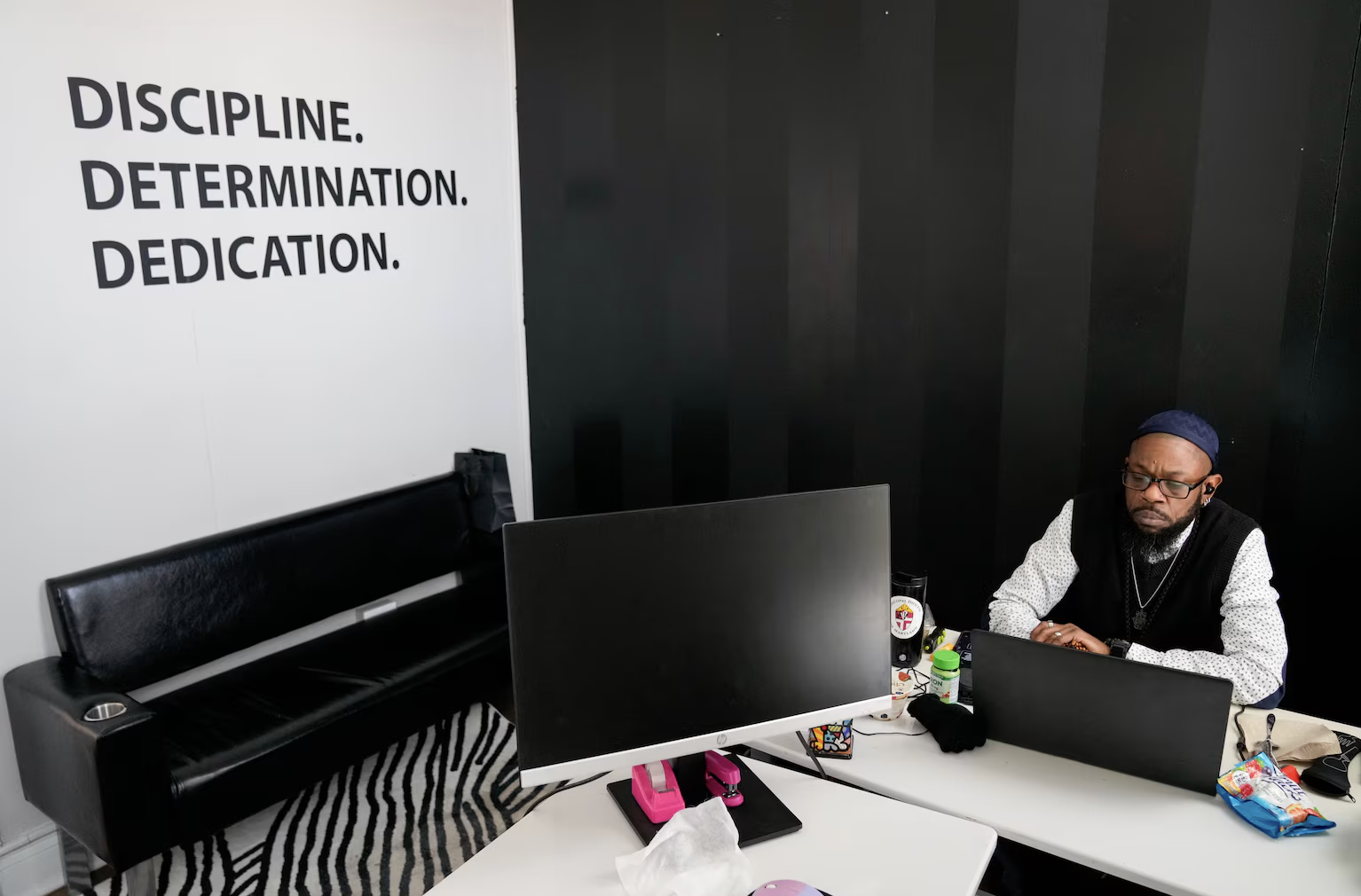
By ALISSA ZHU | After learning it had abruptly lost $2 million in federal funding, the Pride Center of Maryland moved to lay off a dozen employees, or about a third of its workforce, the Baltimore nonprofit’s leader said Thursday.
The group is one of thousands nationwide that reportedly received letters late Tuesday from the Trump administration. Their mental health and addiction grants had been terminated, effective immediately, the letters said.
By Wednesday night, federal officials moved to reverse the funding cuts by the Substance Abuse and Mental Health Services Administration, estimated to total $2 billion, according to national media reports. But the Pride Center of Maryland’s CEO Cleo Manago said as of Thursday morning he had not heard anything from the federal government confirming those reports.
The rest of this article can be read on the Baltimore Banner’s website.
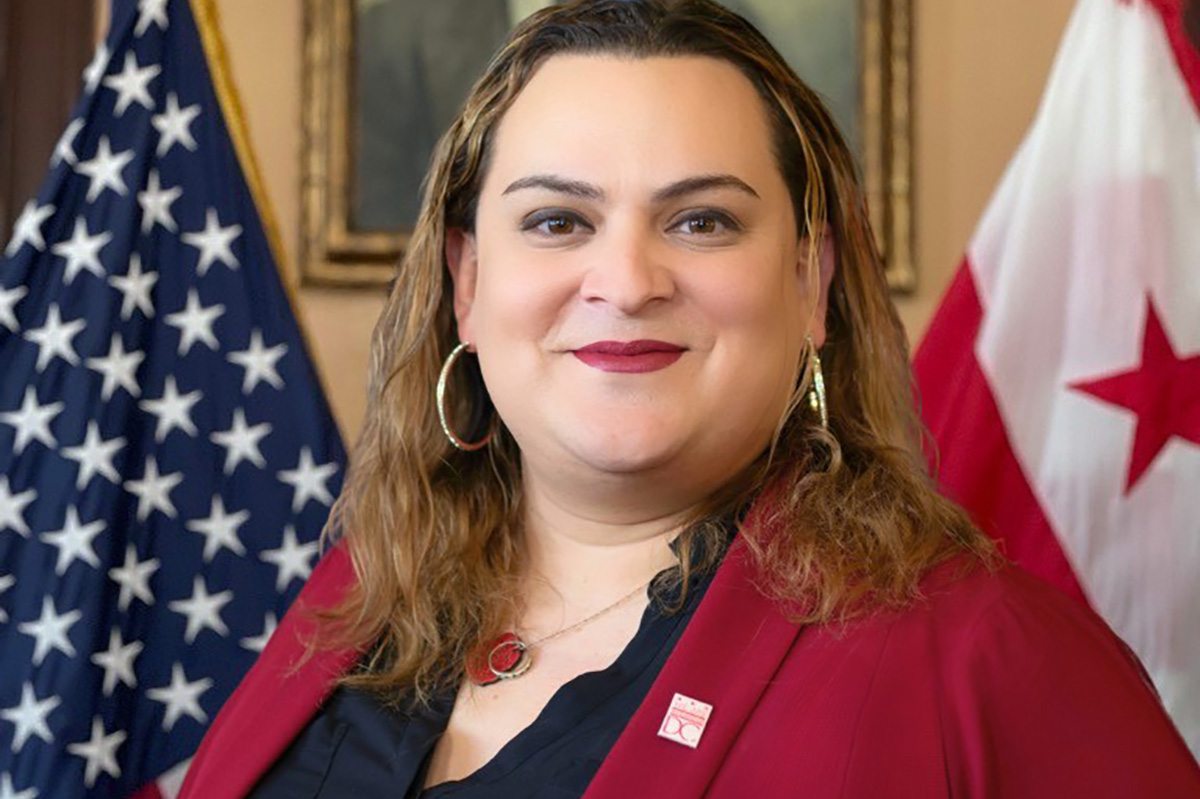
The Comings & Goings column is about sharing the professional successes of our community. We want to recognize those landing new jobs, new clients for their business, joining boards of organizations and other achievements. Please share your successes with us at [email protected].
Congratulations to Vida Rangel, JD/MPP on her promotion to Deputy Director of the Mayor’s Office of Talent and Appointments. Rangel is now the highest-ranking transgender official in the history of District government. On accepting the position Rangel said, “I am proud to step into this leadership role and to continue serving my communities. Our District is full of passionate and knowledgeable people who are committed to public service, and it is an honor to help them explore opportunities to serve their neighbors.”
Rangel has previously served in this office as Director of Operations. Prior to this as Bargaining Committee Chair, Organizing Committee, NCTE United, Nonprofit Professional Employees Union IFTPE Local 70. As Policy Counsel, National Center for Transgender Equality; and Elizabeth Warren for President, lead organizer, Illinois 4th Congressional District. She has worked with, and served on boards of, The Black & Pink National, Federal City Performing Arts Assoc., and LAGBAC.
Rangel earned her bachelor’s in sociology from Sam Houston State University; master’s of Public Policy from Loyola University, Chicago; and Juris Doctor, Loyola University, Chicago.
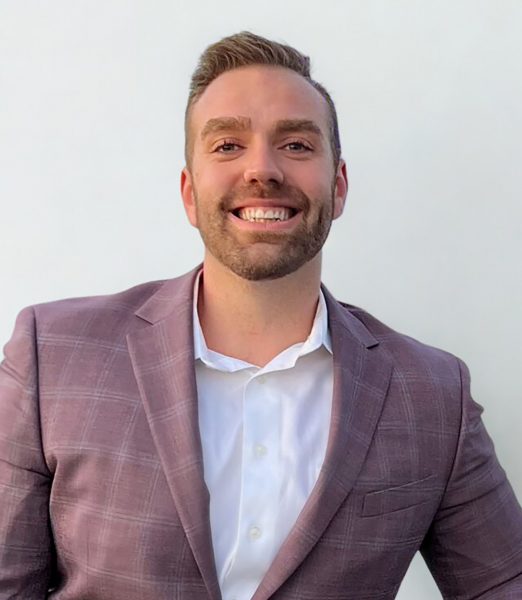
Congratulations also to James Conlon new PFLAG vice president of Development & Philanthropic Partnerships. Upon his appointment Conlon said, “It is an absolute privilege to join PFLAG National and lead their Development & Philanthropic Partner team into a new era. Right now, LGBTQ+ people and their families are terrified of what the future might bring, and PFLAG must continue to be there. My job is to ensure PFLAG strongly endures and thrives, because never has there been a clearer time for our community to unite in fighting for the dignity and well-being of every LGBTQ+ person.”
Brian Bond, CEO, PFLAG National, said, “At a time when PFLAG National programs and participation in them have grown significantly, even as corporate giving has left a $1.3M gap in our funding, James is a critical new addition to the team. With his vast expertise, James will drive our growth and ensure that PFLAG continues meeting the needs of families and communities across the country.”
Conlon is a seasoned fundraiser who has spent extensive time working with advocates, supporters, and leaders, of the LGBTQ+ movement to understand how to effectively support the community. He began his career as an intern in the Massachusetts State House. He has helped raise more than $60 million for critical causes and candidates. Prior to joining PFLAG James oversaw LGBTQ+ investments and fundraising, with the Democratic National Committee (DNC). Prior to that he served in the same role for Harris-Walz 2024, and additionally served in senior fundraising positions for the Senate Majority PAC, as well as for Representatives Josh Gottheimer, and Conor Lamb.
Conlon earned his bachelor’s degree in political science and government from the University of Massachusetts, Amherst.
-

 U.S. Supreme Court4 days ago
U.S. Supreme Court4 days agoSupreme Court hears arguments in two critical cases on trans sports bans
-

 U.S. Military/Pentagon5 days ago
U.S. Military/Pentagon5 days agoHRC holds retirement ceremony for ousted transgender servicemembers
-

 U.S. Supreme Court5 days ago
U.S. Supreme Court5 days agoAs Supreme Court weighs trans sports bans, advocate and former athlete speaks out
-

 Virginia4 days ago
Virginia4 days agoWoman arrested for anti-gay assault at Alexandria supermarket



